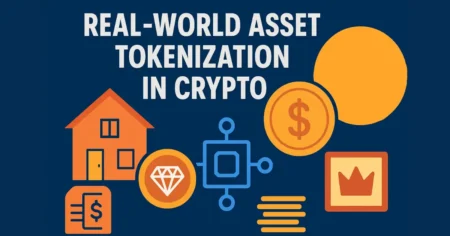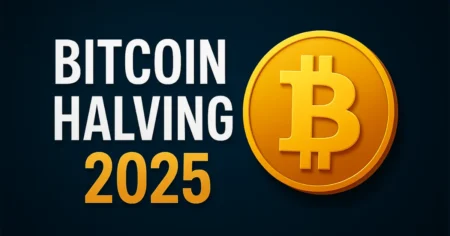Crypto vs stocks
When it comes to growing your wealth, few topics stir up as much curiosity—and confusion—as the debate between crypto and stocks. Both offer opportunities. Both carry risks. But when you’re deciding where to put your hard-earned money, which path makes more sense for you? That’s what we’re going to break down in this detailed, honest, and experience-backed article.
Introduction to the Investment World
Why More People Are Exploring Investments Today
Investing isn’t just for Wall Street pros anymore. In fact, one of the most significant shifts in recent years has been the rise of everyday individuals—like you and me—getting into investments. Whether it’s a 22-year-old college grad using a mobile app to buy her first stock, or a 55-year-old teacher purchasing Bitcoin for the first time, the investing landscape has changed.
Why the sudden boom? For one, the internet has made information and tools widely accessible. You no longer need a fancy financial advisor to tell you what to do. Second, the pandemic taught many of us that saving alone isn’t enough—investing is often key to achieving long-term financial freedom. And third, with rising inflation and stagnant wages, people are looking for smarter ways to grow their money.
I still remember when I opened my first investment account. I didn’t have a background in finance. All I had was curiosity, a little bit of savings, and a willingness to learn. That simple start changed how I viewed money forever.
Defining Crypto and Stocks in Simple Terms
Let’s not overcomplicate this. At the core, stocks are ownership shares in a company. When you buy a stock, you’re buying a piece of that business. If the business grows and earns profits, so can you—either through rising stock prices or dividends.
Cryptocurrency, on the other hand, is digital money built on blockchain technology. When you buy crypto like Bitcoin or Ethereum, you’re purchasing a form of currency or digital asset that operates independently of banks and governments.
Think of stocks like owning a piece of a pizza shop. You benefit when the shop does well. Crypto? It’s more like owning digital gold—you hope its value increases based on supply, demand, and market hype.
Both have their place, but they function very differently. And understanding this foundation is crucial before you make any decisions.
Understanding the Basics
What Are Stocks?
Stocks, also called equities, have been around for centuries. When a company needs to raise money, they can do so by issuing shares of their company to the public. These shares are bought and sold on stock exchanges like the New York Stock Exchange (NYSE) or NASDAQ.
When you buy a share of Apple, for example, you’re not just buying a random piece of paper. You’re literally becoming a part-owner of Apple Inc. That ownership entitles you to a piece of the company’s profits and sometimes voting rights on major decisions.
What I love about stocks is the history and structure they come with. There’s data going back decades. There are experts, analysis tools, and regulations to protect investors. That doesn’t mean the stock market is risk-free—it’s not—but it does offer a framework that many find reassuring.
You can invest in individual companies, or you can go broader with exchange-traded funds (ETFs) that hold multiple stocks. For long-term investors, the stock market has proven to be one of the most consistent ways to build wealth—especially when you stay invested and don’t panic during downturns.
What Is Cryptocurrency?
Now let’s talk crypto. If stocks are traditional, cryptocurrencies are rebellious. Born out of the 2008 financial crisis, Bitcoin emerged as a decentralized form of money—free from banks, free from government interference, and based entirely on blockchain technology.
But Bitcoin is just one of thousands. There’s Ethereum, Solana, Cardano, Dogecoin, and so many more. Each has its own purpose, technology, and fan base. Some are built for digital payments, others for smart contracts, and some—let’s be honest—exist purely for speculation.
Crypto is borderless, fast, and open 24/7. There’s no “closing bell” like in the stock market. You can buy Bitcoin at 3 a.m. on a Sunday if you want to. Transactions are verified through a decentralized network of computers, and the records are permanently stored on the blockchain.
I got into crypto out of curiosity. It felt like a digital frontier—exciting, unpredictable, and packed with potential. But I also learned the hard way that it’s not for the faint-hearted. Prices can swing wildly in minutes, and if you’re not careful, you could lose a lot.
Still, the potential? Massive. But with great potential comes great risk.
History and Evolution
Evolution of the Stock Market
The stock market dates back to the 1600s, with the Amsterdam Stock Exchange being one of the first of its kind. Fast forward to today, and we’ve got massive global exchanges where trillions of dollars are traded daily.
Over time, stock investing has evolved. From manual trading floors to algorithm-based systems, the market has modernized. But one thing has remained: the market reflects human psychology—greed, fear, hope, and strategy all bundled into prices that go up and down.
And let’s not forget the milestones. The Great Depression, the 2008 financial crisis, the pandemic crash and rebound—each moment shaped how we view and interact with stocks.
Personally, I’ve watched how the market corrects itself over time. Yes, it crashes. But historically, it recovers—and often stronger than before. That long-term resilience gives me confidence.
The Rise of Cryptocurrency
Crypto, in contrast, is a much newer phenomenon. Bitcoin was introduced in 2009 by the mysterious Satoshi Nakamoto. At first, it was dismissed as a fad. Then it was called a bubble. But today, it’s a multi-trillion-dollar industry with real-world adoption and growing interest from institutional investors.
In just over a decade, crypto has gone from internet forums to the front pages of major financial news outlets. It’s evolved beyond just currency—think decentralized finance (DeFi), non-fungible tokens (NFTs), and even blockchain-based gaming.
Crypto’s rise mirrors the internet boom. Some projects will change the world. Others will crash and burn. But the innovation is undeniable.
When I first heard of Bitcoin, I thought it was a joke. But the more I learned, the more I realized it wasn’t just about money—it was about technology, freedom, and a new way of thinking.
How Do They Work?
Mechanics of Stock Trading
Stock trading used to be complex. Now? It’s a few taps on your phone. Platforms like Robinhood, E*TRADE, and Fidelity have simplified the process for everyone.
Stocks are traded during market hours, and trades are executed through brokers. Each transaction is recorded, and you can view charts, earnings, news, and analyst opinions before making a move.
There are different strategies: buy-and-hold, day trading, swing trading, dividend investing—the list goes on. Your approach depends on your goals and risk tolerance.
I personally started with buy-and-hold. I picked companies I believed in and stuck with them. Watching those small investments grow over years was incredibly satisfying.
How Cryptocurrency Transactions Operate
Crypto trading, on the other hand, happens on exchanges like Coinbase, Binance, or Kraken. You don’t need a broker. You just need an account and a digital wallet.
Transactions are verified using consensus mechanisms like Proof of Work or Proof of Stake. Once verified, they’re added to the blockchain—a public, unchangeable ledger.
What’s wild is how fast things move. Prices update by the second, and the global nature means news from one country can ripple across markets instantly.
At first, I found it overwhelming. But over time, I learned to manage my emotions, set stop-losses, and never invest more than I could afford to lose. Crypto taught me discipline—the hard way.
Accessibility and Entry Barriers
How Easy Is It to Start with Stocks?
Getting started with stock investing today is easier than ever before. Gone are the days when you needed a broker in a suit or thousands of dollars to enter the market. Thanks to commission-free apps like Robinhood, Webull, and SoFi, you can now start investing with as little as $1. Fractional shares allow you to buy a portion of a stock, meaning you can own part of Amazon without paying over $3,000 for a full share.
But accessibility isn’t just about money—it’s about knowledge. And fortunately, there are more free learning resources than ever: blogs, YouTube, podcasts, and even in-app tutorials. The challenge isn’t finding information—it’s choosing the right information and knowing how to apply it.
While the process is simple, making smart decisions is another story. When I first started, I blindly followed trending stocks and Reddit threads. Big mistake. I lost money and realized I didn’t understand what I was buying. That experience taught me the value of research and patience.
Overall, stock investing is very beginner-friendly, especially if you stick to basics like index funds or ETFs. It’s a stable, well-regulated environment, making it an ideal starting point for many investors.
How Accessible Is Crypto for Beginners?
Crypto has lowered the financial barriers to investing, but it comes with its own complexities. The onboarding process is different—you’re not just opening an account; you’re setting up digital wallets, securing seed phrases, and understanding blockchain networks. This can be overwhelming for newcomers.
That said, crypto exchanges like Coinbase, Binance, and Kraken have done a great job of streamlining the user experience. You can buy Bitcoin with your debit card in minutes. Some platforms even offer “Learn and Earn” programs that pay you small amounts of crypto to complete lessons.
What makes crypto appealing is its 24/7 nature. You don’t have to wait for market hours. You can buy, sell, or trade anytime. But that freedom also increases the temptation to overtrade, chase pumps, or fall for hype.
When I first got into crypto, I had no idea about gas fees, blockchain networks, or how to avoid phishing scams. I made all the rookie mistakes—but I also learned fast. If you’re tech-savvy and curious, crypto is accessible. But if you’re not prepared to learn the ropes, it can be a rough ride.
In short, crypto is financially accessible, but mentally demanding. It’s not just about money—it’s about understanding how a whole new digital economy works.
Volatility and Risk Factors
Stock Market Volatility Explained
Stock prices fluctuate based on several factors: company performance, economic news, interest rates, political events, and even investor sentiment. While this volatility can be unsettling, it’s usually more predictable than crypto. Stocks tend to move within a certain range, and large swings are often tied to earnings reports or major news.
One advantage is that stocks are backed by tangible companies. Even when prices dip, the underlying business continues to operate, make profits, and deliver value. That stability offers a sense of security to long-term investors.
During the COVID-19 pandemic, I saw my portfolio drop by 30% in a matter of weeks. It was scary—but I held on, and the market eventually rebounded. That experience reinforced my belief in long-term investing and not letting short-term volatility derail my strategy.
Yes, stocks can crash. But historically, they recover. Volatility in stocks often feels like a storm you can weather—if you stay calm and focus on the fundamentals.
Crypto Volatility: A Wild Ride
Now let’s talk about crypto—where “volatility” takes on a whole new meaning. It’s not uncommon for Bitcoin or Ethereum to swing 10-20% in a single day. One tweet from Elon Musk or a government announcement can send prices skyrocketing—or crashing.
Why is crypto so volatile? Because it’s still speculative. There are no quarterly earnings or revenue reports to stabilize prices. Prices move based on hype, fear, adoption news, and market psychology. It’s a trader’s paradise—and a long-term investor’s stress test.
I’ve seen my crypto portfolio double in a week and drop by half just as fast. It’s exhilarating and terrifying. This kind of volatility requires strong nerves and a solid exit plan.
For some, this high-risk, high-reward environment is exciting. For others, it’s emotionally draining. If you’re considering crypto, ask yourself: can I stomach seeing my investment drop 40% overnight? If not, you might want to limit your exposure or stick to more stable options.
Crypto’s volatility offers unmatched profit potential—but also the risk of total loss. It’s not for everyone.
Security and Regulation
How Stocks Are Regulated
Stock markets are among the most tightly regulated financial environments in the world. In the U.S., the Securities and Exchange Commission (SEC) oversees public companies and ensures transparency, honesty, and accountability. Companies must file quarterly and annual reports, disclose financials, and adhere to strict rules.
As an investor, you’re protected by various consumer laws. Your brokerage accounts are insured by SIPC up to $500,000. There are mechanisms to catch insider trading, market manipulation, and fraud.
When I started investing, knowing these protections were in place gave me peace of mind. I wasn’t just trusting a company—I was trusting a system built on oversight and experience.
Sure, there are still risks. Companies can go bankrupt. Stocks can crash. But you’re operating within a regulated, stable framework. That structure is a big plus, especially for conservative or new investors.
Regulatory Landscape of Cryptocurrency
Crypto, on the other hand, lives in a regulatory gray area. Some countries embrace it, others ban it, and many are still figuring out how to handle it. In the U.S., different agencies (SEC, IRS, CFTC) all claim some level of oversight—but there’s no unified approach yet.
This lack of regulation is both a blessing and a curse. On the one hand, it allows for rapid innovation and freedom. On the other, it opens the door to scams, rug pulls, and untrustworthy projects.
When I first invested in a crypto altcoin, I didn’t know how to check if it was legit. Turns out, it wasn’t. The developers disappeared, and the coin tanked to zero. Lesson learned.
Security in crypto is also self-managed. If you lose your wallet password or fall for a phishing scam, there’s no bank to call for help. You’re your own bank—and that means full responsibility.
More regulation is coming. And frankly, the space needs it. Until then, if you’re in crypto, be cautious, double-check everything, and never invest more than you can afford to lose.
Returns on Investment (ROI)
Long-Term vs Short-Term ROI in Stocks
When it comes to stocks, the return on investment (ROI) is often slow and steady—but highly rewarding over time. Historically, the average annual return for the S&P 500 has hovered around 8% to 10%, factoring in dividends. This makes it a reliable long-term wealth-building tool.
If you invest in solid companies or diversified index funds and hold them for years, the compounding effect can be powerful. I’ve personally seen investments double over 7–10 years with zero trading. That’s the beauty of compounding: your money makes money, and then that money makes more money.
Short-term ROI in stocks, however, is much trickier. Trading stocks frequently, especially without a strategy, often leads to losses. The market can swing based on quarterly earnings, news headlines, or economic data—none of which are easy to predict.
When I tried day trading early in my journey, I made a few quick gains—but gave them back just as fast. It taught me that successful short-term trading requires skill, discipline, and sometimes luck.
If your goal is long-term financial security, stocks—especially diversified ETFs or blue-chip companies—are a solid option. The returns may not make you rich overnight, but they offer stability and compounding growth you can count on.
Crypto Gains: Fast but Risky?
Crypto’s ROI potential is what draws people in. It’s not uncommon to see coins jump 200%, 500%, or even 1,000% in a short period. Stories of overnight millionaires are everywhere—and yes, they’re real. But what those stories don’t always show are the thousands who lost everything chasing those same dreams.
I’ve seen both sides. I bought Ethereum early and saw a 5x return. I also bought into a meme coin at its peak—and lost 90% of that investment. It’s a high-risk, high-reward game.
Unlike stocks, crypto doesn’t pay dividends. Your gains are purely price-based. That means your ROI is completely dependent on market movements and speculation unless you’re staking or using DeFi platforms.
If you get in early on a promising project and it takes off, the returns can be life-changing. But if you jump in late or invest in something with no real use case, you might end up with nothing.
Crypto can offer explosive ROI—but only if you manage risk, do your research, and don’t fall for hype. It’s more like gambling if you’re not careful. But with a smart, strategic approach, it can outperform traditional investments—just not without serious volatility.
Use Cases and Utility
Practical Uses of Stocks in the Financial World
Stocks aren’t just numbers on a screen—they represent real businesses doing real work. By investing in companies, you’re helping fund innovation, job creation, and economic growth. Your stock portfolio can also provide income through dividends, which is especially useful in retirement planning.
One of the key uses of stocks is wealth preservation. Over decades, they help beat inflation and increase your purchasing power. That’s why retirement accounts like 401(k)s and IRAs are often built on stocks—they offer consistent, long-term growth potential.
Additionally, stocks are liquid assets. Need money fast? You can sell shares and receive cash in a few days. That flexibility is underrated but incredibly valuable in emergencies.
Personally, I’ve used stocks to build not just wealth, but freedom. Watching my portfolio grow over time gave me the confidence to quit a job I didn’t love and pursue something I did. That’s the kind of utility money should bring—freedom, not just numbers.
Stocks also serve as collateral for loans, can be transferred as inheritance, and are foundational in countless financial strategies. Their use extends far beyond just speculation.
Real-World Use Cases for Cryptocurrencies
Crypto, meanwhile, is redefining how we think about money. It’s more than just a digital investment—it’s a revolution in finance. Cryptocurrencies like Bitcoin are being used for cross-border payments, store-of-value protection, and even hedging against inflation in unstable economies.
Then there’s Ethereum and smart contracts. These allow for decentralized apps (dApps), DeFi protocols, and NFTs—all built without middlemen. I’ve personally used crypto to lend assets on DeFi platforms and earn passive income. It felt like unlocking a secret layer of finance that traditional banks never offered me.
Crypto also has major implications for privacy and autonomy. You control your wallet, your transactions, and your data. No bank can freeze your account. That level of control is empowering, especially in countries with unstable governments or oppressive financial systems.
However, the utility of crypto depends on the coin. Bitcoin is like digital gold. Ethereum is more like programmable money. Some tokens, frankly, do nothing—and are just vehicles for speculation.
Crypto has incredible real-world use, but not every coin offers it. It’s crucial to understand why a coin exists and how it adds value to the world.
Taxation and Legal Implications
How Stocks Are Taxed
Taxation in the stock market is relatively straightforward. If you sell a stock for more than you bought it, that’s a capital gain—and you pay tax on it. If you held it for over a year, it’s taxed at the lower long-term capital gains rate. Hold it for less than a year, and it’s taxed as ordinary income.
Dividends are also taxed—either at qualified rates (lower) or ordinary income rates, depending on the stock and how long you’ve held it.
What’s great is that your brokerage usually provides tax documents, making it easier to file. I remember my first tax season as an investor—I simply uploaded my 1099 from my brokerage, and the tax software handled the rest.
You can also offset gains with losses using a strategy called tax-loss harvesting. It’s a powerful tool to reduce your tax burden legally.
Overall, stock taxes are manageable—and you can plan for them.
Tax Complexity with Crypto
Crypto taxes are another story entirely. Every trade, swap, or conversion is a taxable event. Yes, even if you swap one coin for another—you’ve just realized a gain or loss in the eyes of the IRS.
I learned this the hard way. I made several trades in one year, thinking I was being smart. But when tax season came, I had to track every single transaction across multiple platforms. It was exhausting.
Crypto also lacks unified tax reporting. Some exchanges don’t send tax forms, and many users move funds between wallets, making it harder to track gains. That’s where tools like CoinTracker or Koinly come in handy—they aggregate your transactions and calculate your tax bill.
Adding to the confusion, some crypto rewards (like staking, airdrops, and mining) are taxed as income when received. So even if the price drops later, you might owe taxes on the higher original value.
Crypto taxes are complicated and still evolving. If you’re serious about crypto investing, you’ll likely need tax software—or even a professional—to stay compliant.
Emotional and Psychological Impact
Stress and Patience in Stock Investing
Stock investing is a marathon, not a sprint. It teaches patience, discipline, and emotional control—traits many of us don’t realize we lack until our money is on the line. Even though stocks are relatively stable compared to crypto, the market still moves, and watching those movements can test your nerves.
One of the biggest challenges I faced early on was resisting the urge to constantly check my portfolio. A red day would make me anxious. A green day would make me greedy. Over time, I learned that obsessing over short-term movements only led to emotional decisions—buying high, selling low, and reacting impulsively.
Long-term investors need to develop a thick skin. Markets dip, recessions happen, and bad news comes and goes. But if you focus on strong fundamentals and stay invested through the noise, history has shown that the market rewards patience.
A wise investor once told me, “Time in the market beats timing the market.” That stuck with me. I’ve since built a habit of checking my portfolio quarterly, not daily. This shift not only improved my returns—it preserved my peace of mind.
Investing in stocks can be emotional, but with the right mindset and a long-term view, it becomes a tool for stability and growth.
The Emotional Rollercoaster of Crypto Trading
Crypto isn’t just an investment—it’s an experience. And that experience can be emotionally intense. Price swings are dramatic. You might wake up to a 30% drop or a 50% pump. This volatility creates an environment where fear and greed are constantly at war.
I still remember the night I saw one of my altcoins triple in value. I was euphoric. I couldn’t sleep. Then two days later, it crashed back down—and I felt crushed. That emotional rollercoaster is exhausting and can lead to irrational decisions.
In crypto, it’s easy to get caught up in FOMO (fear of missing out) or panic sell during a dip. The psychological toll is real. Social media doesn’t help either—every platform is filled with hype, memes, and fear-inducing headlines.
If you’re not emotionally prepared, crypto can mess with your mental health. That’s why I started setting rules: take profits regularly, never invest what I can’t afford to lose, and step away from charts when I feel overwhelmed.
Successful crypto traders often talk about mindset more than strategy. It’s not just about picking the right coin—it’s about managing emotions, staying calm under pressure, and knowing when to walk away.
Crypto can be thrilling, but it’s not for the emotionally unprepared. And that’s something every new investor needs to hear.
Market Trends and Future Predictions
Future of the Stock Market
The stock market isn’t going anywhere—it’s the backbone of the global financial system. But it is evolving. With the rise of technology, algorithmic trading, and fractional shares, the way we interact with the market is becoming more inclusive and efficient.
One trend I’ve noticed is the growing focus on ESG (Environmental, Social, and Governance) investing. People want their money to align with their values, and companies that prioritize sustainability are gaining traction. This shift could influence the next generation of top-performing stocks.
Another trend? More retail investors entering the market. Platforms like Robinhood and educational content on social media are democratizing finance. We’re witnessing a new era where investing isn’t just for the rich—it’s for anyone with a smartphone.
That said, the market will always have cycles—booms and busts. But long-term? It remains one of the most reliable paths to wealth. I believe that as technology continues to simplify investing, participation will only grow, and long-term gains will remain attractive.
What Lies Ahead for Cryptocurrency?
Crypto’s future is both exciting and uncertain. On one hand, we’re seeing growing adoption by major institutions, governments exploring digital currencies, and innovations like Web3 and decentralized finance (DeFi) pushing boundaries.
But regulation is coming. And that’s a good thing. Clear rules can help weed out scams, stabilize markets, and encourage institutional investment. Countries like the U.S., UK, and EU are actively working on regulatory frameworks, and while that might limit some of crypto’s “wild west” appeal, it will likely make the space safer and more trustworthy.
I also see more real-world utility being developed. Blockchain is being used for supply chain tracking, digital identity, healthcare records, and even voting. The days of crypto being just about price speculation are fading.
Still, the road ahead won’t be smooth. There will be crashes, scandals, and setbacks. But like the early internet, the underlying tech is revolutionary—and will shape the future of finance and beyond.
Personal Experience and Insights
My Journey into Stocks
My stock investing journey started small. I was nervous, unsure, and had no financial background. I bought a few shares of blue-chip companies, mostly because I recognized their names—Apple, Coca-Cola, and Microsoft. It wasn’t glamorous, but it was safe.
Over the years, I made mistakes. I sold too early. I bought based on hype. I ignored earnings reports. But I learned. Slowly, my confidence grew. I started exploring ETFs, understanding fundamentals, and diversifying my portfolio.
What I appreciate most about stocks is the ability to build wealth passively. It’s not about getting rich quick—it’s about building a solid foundation. Watching my portfolio grow—even slowly—gave me a sense of control and financial freedom.
Today, my stock investments are the backbone of my long-term financial plan. They may not be flashy, but they’ve been dependable. And in a world that feels chaotic, that dependability is worth a lot.
My First Brush with Crypto: Lessons Learned
Crypto, for me, was curiosity mixed with excitement. My first buy was Ethereum. I knew little about it, but the tech sounded interesting. The price doubled, then tripled. I was hooked. Then came the crash—and I panicked, sold, and regretted it.
I made every rookie mistake: I bought high, sold low, chased hype, ignored research. But I also learned fast. I discovered the importance of storing coins safely, researching projects thoroughly, and thinking long-term—even in a volatile space.
Crypto taught me risk management. It taught me to question everything. And it taught me not to invest based on Twitter threads or YouTube influencers.
Today, I still hold crypto—but with a more grounded approach. I diversify, take profits, and never invest money I can’t afford to lose. Crypto is a part of my portfolio, not the whole thing.
And that balance? It’s what keeps me sane.
Pros and Cons Summary Table
| Feature | Stocks | Cryptocurrency |
|---|---|---|
| Regulation | Highly regulated | Loosely regulated (for now) |
| Volatility | Moderate | Extremely high |
| Returns | Steady over long-term | High risk, high reward |
| Accessibility | Very beginner-friendly | Requires tech understanding |
| Liquidity | High | Very high (24/7 markets) |
| Dividends | Yes | No (except staking) |
| Tax Complexity | Low to moderate | High |
| Emotional Impact | Manageable with discipline | Intense and unpredictable |
| Utility | Real business backing | Emerging use cases |
| Security | Broker-insured accounts | Self-managed, vulnerable to hacks |
Conclusion: Which One is Right for You?
Stocks and crypto aren’t enemies—they’re tools. And like any tool, their value depends on how and why you use them. If you value stability, long-term growth, and proven returns, stocks are your best bet. They offer predictability, dividends, and structure.
But if you crave innovation, high-risk opportunities, and a stake in the financial systems of tomorrow, crypto might be the adventure you’re looking for.
Here’s my take: you don’t have to choose just one. I invest in both. I rely on stocks for long-term wealth building and use crypto as a smaller, higher-risk component of my portfolio.
Whatever you decide, the key is education. Know what you’re getting into. Understand the risks. And most importantly—invest with intention, not emotion.
FAQs
Is crypto more profitable than stocks?
Potentially, yes. Crypto can deliver massive short-term gains, but it’s also much riskier. Stocks offer more stable, long-term returns.
Which is safer to invest in: stocks or crypto?
Stocks are safer due to regulation, historical performance, and company fundamentals. Crypto is riskier but can be rewarding with proper research.
Can I invest in both?
Absolutely. Many investors diversify across both. Consider your risk tolerance and financial goals when allocating funds.
How much should I invest initially?
Start small—$50 to $100 is enough to begin learning. Never invest money you can’t afford to lose, especially in crypto.
Do I need a broker for crypto?
No. You can use crypto exchanges directly. However, you’ll need a secure wallet to store your assets safely.
Also, read
- What is a Crypto Wallet and How Does It Work? – Coinsify
- 10 Crypto Terms Every Beginner Must Know – Coinsify
- What is Blockchain Technology – Complete Guide – Coinsify
- How to Buy Crypto Safely in 2025 – Complete Guide – Coinsify
- Bitcoin vs Ethereum: Key Differences Explained – Complete Guide
- Ultimate Blockchain Glossary: Learn Blockchain Terms Easily
- How to Buy Bitcoin Safely (Complete Beginner’s Guide)
- Top 10 Crypto Wallets for Beginners (2025 Edition)
- What is Cryptocurrency? A Beginner-Friendly Guide (2025)






